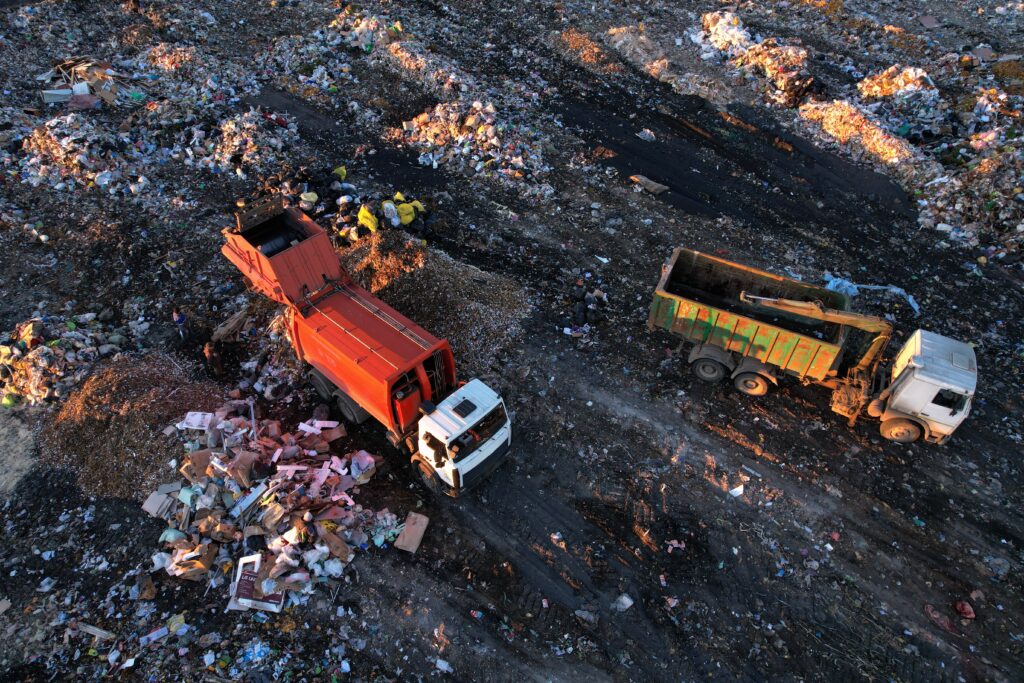The latest national waste report for the Republic warns that “little progress” is being made in meeting the Directive's target for diverting materials like paper, cardboard and organic waste from landfill.
| Ireland 2004: Key facts |
|
Municipal waste produced: 3,034,566 tonnes Municipal waste annual growth: 4% Municipal waste landfilled: 67% Municipal waste recovered: 33.6% Household waste recycling rate: 19% Packaging waste recovery rate: 56% Amount of recycling taking place abroad: 74% Construction/industrial waste produced: 11 million tonnes C/I waste recycled: 85% (unverified) |
This comes despite increases made in the recovery of municipal waste overall and packaging waste in particular, dubbed as “remarkable” by the Environmental Protection Agency.
As a result, the report – published by the Agency yesterday – calls for local authorities to prioritise new organic waste collections from households.
Ireland generated just over 1.9 million tonnes of biodegradable municipal waste in 2004, with 1.3 million tonnes (67.4%) going to landfill. However, the diversion targets set by Europe's Landfill Directive are tied to the amount of biodegradable municipal waste landfilled in 1995, which for Ireland was 1.28 million tonnes.
Targets
To meet its targets, the Republic is supposed to cut its landfilling of biodegradable municipal waste to 967,000 tonnes before 2006, then 645,000 tonnes before 2009 and by 2016 the Directive requires Ireland to landfill no more than 452,000 tonnes of biodegradable municipal waste.
Ireland's 33% municipal waste recovery rate was praised by the Environmental Protection Agency, as well as its 56% packaging recycling rate. Most Irish waste that was recycled (74%) was recycled abroad.
But during 2004, the Republic was still sending more biodegradable waste to landfill than it did in 1995 according to the National Waste Report 2004. The report noted that the proportion of biodegradable material within municipal waste going to landfill had increased from 65% to 74% with more dry recyclables being separated out for recycling.
” We would urge local authorities to establish what is happening to uncollected waste and to ensure that practices such as fly tipping and backyard burning are eliminated. “
– Dr Gerry Byrne, EPA
The Agency warned: “Measures should be put in place to separately collect and treat organic waste from households, restaurants, hotels, etc., and thereby divert this material from landfill. This waste stream should be prioritised by local authorities if Ireland is to reach the targets for landfill diversion laid down in the Landfill Directive.”
Additionally, the report states that Ireland has only eight years of landfill capacity remaining.
A new national strategy for biodegradable waste diversion is in the pipeline, which the Agency said would help meet the targets, and the Agency anticipated new incinerators for Ireland. It also noted that for the first time, material is being sent to Germany for incineration. Nevertheless, it warned “there is still some distance to go to the 50% landfill diversion target for 2013.”
“Uncollected”
Further troubles for the Republic include the estimated 227,374 tonnes of municipal waste that has effectively gone missing. This “uncollected” household waste could have been dealt with by fly-tipping and by householders burning it at home, a problem highlighted by a report last year (see letsrecycle.com story).
| Related links: |
It is thought this “backyard burning” may be a direct consequence of Ireland's high profile “pay as you throw” pay by weight waste collection system.
Commenting on the issue, the Environmental Protection Agency's programme manager, Dr Gerry Byrne, said: “We would urge local authorities to establish what is happening to this uncollected waste and to ensure that practices such as fly tipping and backyard burning are eliminated.”







Subscribe for free